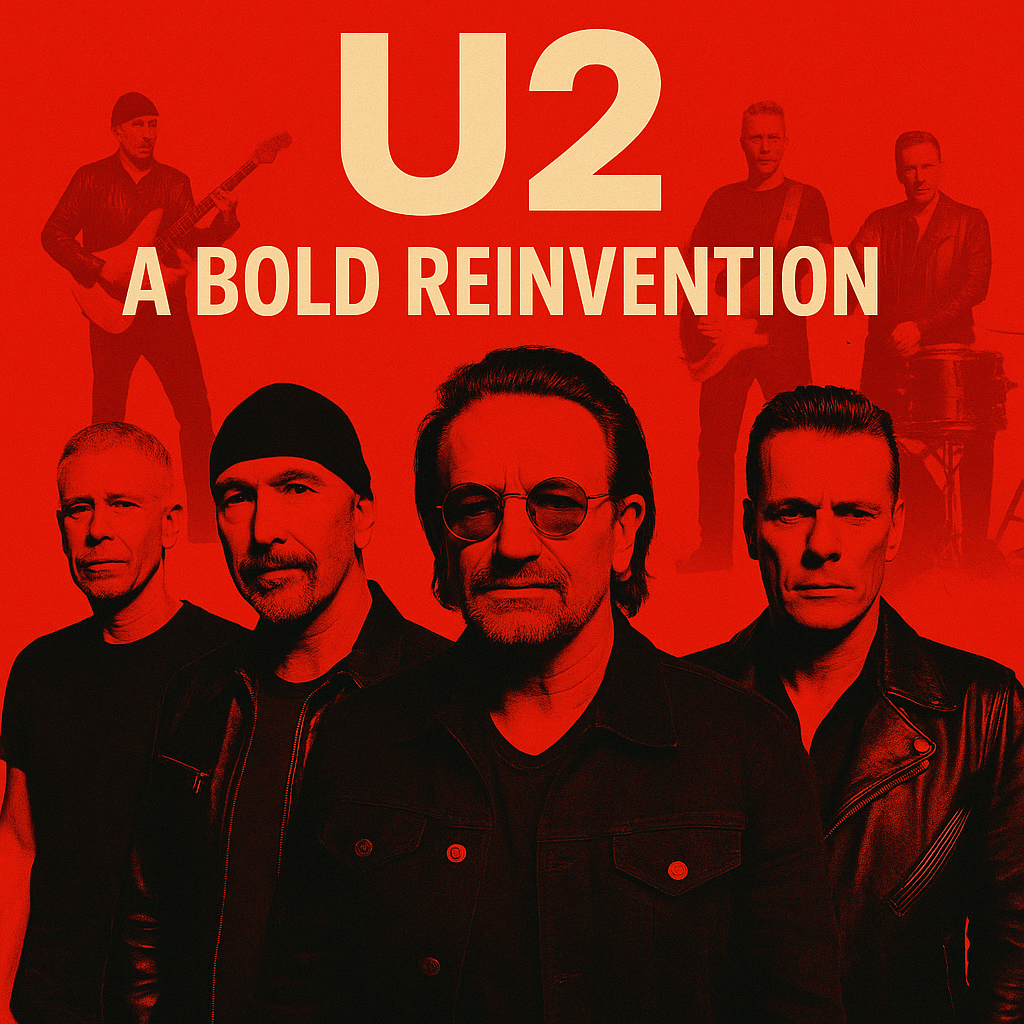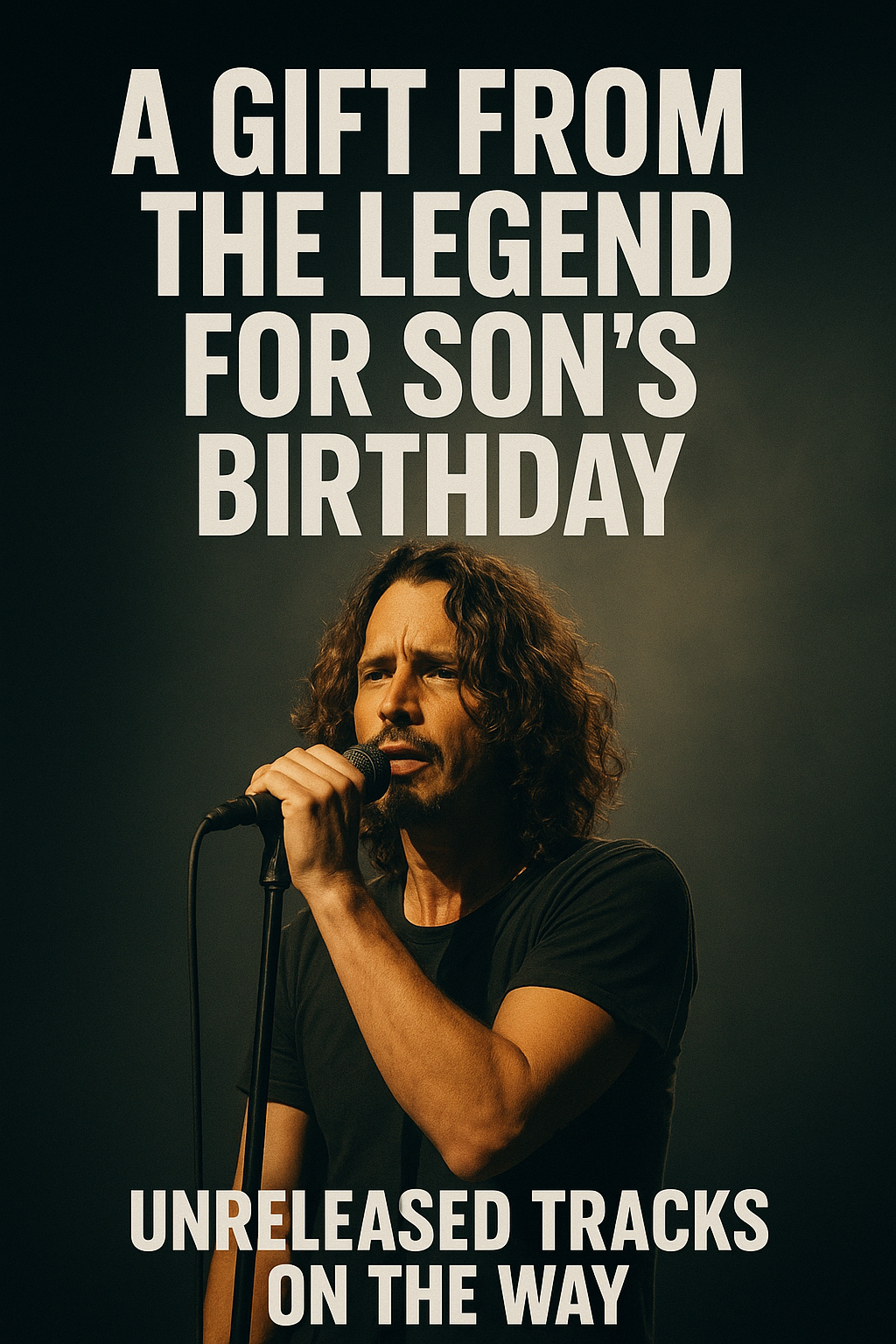U2’s return to the studio has always been more than a creative act—it’s a moment. For decades, each of their albums has mirrored the world’s pulse, often reflecting or challenging the spirit of the time. Their latest effort, still untitled publicly but already sparking intense buzz among insiders and fans alike, is no exception. This new chapter in the band’s storied history teases something rare: a reinvention that honors their roots while launching them into thrilling new sonic territory.
From the earliest whispers of the project, it’s been clear that this isn’t just another U2 album. Collaborators close to the band have hinted at an ambitious soundscape that draws from both analog warmth and the relentless experimentation of modern production. Early reports suggest the band has found a new synergy, blending the rawness of their post-punk origins with atmospheric textures that wouldn’t be out of place in today’s most boundary-pushing releases.
Bono’s voice remains a centerpiece, but fans will notice something different. He no longer sings from a mountaintop but instead steps into shadowy spaces, allowing vulnerability and grit to take precedence over grandeur. These aren’t songs meant to fill stadiums—though they surely will—but songs that demand listeners come closer, listen harder, and feel deeper.
The Edge’s guitar work continues to be the band’s signature compass, but his latest sonic explorations lean toward distortion-drenched minimalism, a far cry from the shimmering delay of the Joshua Tree days. His playing is more aggressive, more urgent. It’s as though he’s shedding layers of expectation to tap into a voice that’s long been waiting beneath the surface.
Adam Clayton and Larry Mullen Jr., the bedrock of U2’s rhythm, have also taken a leap forward. Clayton’s basslines throb with a new kind of funk-inspired swagger, adding weight and groove that feels both fresh and timeless. Meanwhile, Mullen’s drumming—whether thunderous or restrained—is delivered with razor-sharp precision, laying down beats that ground the band’s loftiest experiments.
Lyrically, this album might be U2’s most introspective to date. Rather than sweeping political anthems or calls for global unity, these songs seem to explore interior landscapes—love, loss, identity, aging, and the cost of change. Bono is no longer asking where the streets have no name; he’s asking who we become when those streets disappear altogether.
The recording process itself has been unusually secretive. Gone are the open-door sessions of recent years. Instead, the band has cloistered themselves in unfamiliar studios, working with a mix of longtime allies and daring new producers. Word has it that some tracks were built entirely from ambient field recordings, while others started as acoustic ballads and morphed into synth-driven soundscapes.
Fans should expect surprises. Sources indicate that not every song will feature all four members, a sign that the band is exploring configurations and textures that break from tradition. Some songs reportedly veer toward electronic soul, while others flirt with jazz-infused rhythms. The result is an album that is intentionally uneven—in the best way possible.
This musical risk-taking doesn’t feel forced. Instead, it feels earned. After nearly five decades together, U2 has nothing left to prove, and that liberation has granted them the space to explore without fear. The tension between familiarity and innovation is what gives this album its pulse. They are not chasing youth or trends—they are distilling experience into something new.
Yet, amid all the change, the band’s spirit remains unmistakable. That sense of spiritual searching, of grappling with the human condition, still drives every track. The songs might sound different, but the emotional core—the reason fans fell in love with U2 in the first place—is very much alive.
The anticipation is reaching a fever pitch. With teaser clips surfacing online and cryptic images appearing on the band’s social channels, speculation is rampant. Some believe the album could drop unexpectedly, while others think a massive global rollout is in the works. Either way, fans are ready.
What’s most exciting is the sense that U2 isn’t merely revisiting their legacy—they’re rewriting it. “New Sounds, Same Spirit” is more than a phrase; it’s a mission statement. If this album delivers on its promise, it may go down as one of the boldest moves in their career, proving that reinvention is not a betrayal of the past, but a celebration of its power to shape the future.



